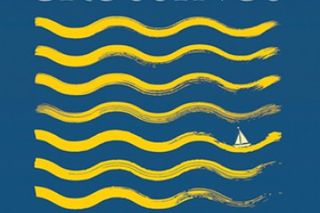Memory
Loss Strengthens Ties Between Father and Son
The connections that help us do our best as a parent.
Posted June 18, 2018

A good friend read an early draft of my new book “Cancer Crossings: A Brother, His Doctors and the Quest to Cure Childhood Leukemia.”
“I like where it’s headed,” he said. “But I have a question: ‘How did losing a brother affect you as a parent?’”
His query stopped me in my tracks. For while my son never suffered from anything as serious as acute lymphoblastic leukemia, which was a death sentence when my brother was diagnosed in 1966, Chris did struggle with severe asthma when he was little. That’s how I found myself back in the land of hospitals and doctors decades later after my brother Eric’s death.
“Are you all right?” my wife Jacqui asked me on one of our first trips to emergency with Chris.
It was late autumn 1995, and we had moved to the University of Michigan in Ann Arbor for the school year. That’s when a dry, raspy cough began to force Chris to come inside from playing with the other kids. It was the kind of cough that any parent soon learns to dread.
“This place gives me the willies,” I told my wife, gazing around us at the gleaming hallways of the university medical complex that led off in all directions.
“Why’s that?”
“It reminds me too much of my brother.”
Just before Christmas, Chris had another severe bad bout of asthma. (We would later discover that fresh-cut evergreen trees set him off.) We had driven a few hours east, across the Canadian border, to spend the holidays with my mother-in-law.
Our first evening there, Chris’ cough returned with a vengeance. I’m the light sleeper in our household and I stole down to the small bedroom where my son was trying to rest. The dry rasp grew in frequency and ferocity—a monster, something evil that boiled up deep inside of him. I sat beside his bed, stroking Chris’ head, wishing I could somehow lift the illness free from his small body. Take it and make it mine.
Soon I awoke Jacqui and we bundled Chris up for another trip to the emergency room. Dressed in his snow jacket, zipped up to the chin, with hat and mitts on, Chris gazed out the window at the holiday lights as we sped along Lake Ontario in the predawn darkness. I glanced at him in the rear-view mirror, praying that he would be all right.
At the hospital, a young doctor, a woman in her early thirties, placed a stethoscope to Chris’ chest and listened intently. Another round of meds was ordered up and I went to fetch them.
When I returned, Jacqui was talking with the young doctor outside our son’s room.
“She says we aren’t being aggressive enough with his prescriptions,” Jacqui said, “especially Albuterol.”
“But other doctors –” I began.
“I cannot speak to that,” the young doctor said.
She looked like she had been up for hours. With dark circles under tired eyes, she undoubtedly wanted to finish her shift and enjoy what was left of her holiday. Yet she had stayed to speak with us–to urge us to try a different approach with our son.
“The meds he’s being given are good ones,” she said in a weary voice. “I just think they are being started too late with him. By the time he’s on the Albuterol, for example, the asthma has settled into the lungs. Can I make a suggestion?”
We both nodded.
“As soon as he begins to cough, start him on the Albuterol. He can be on Singular and other drugs for maintenance, too, but starting the Albuterol right away should help with the more serious symptoms.”
That same school year at Ann Arbor, I took Chris skating at Yost Ice Arena, where the Michigan Wolverines played. Chris could barely skate back then and he reminded me of my brother Eric when he insisted on playing on a local hockey team despite being an out-patient at the Roswell Park Cancer Institute.
Chris and I stepped onto the ice at Yost, merging into the slow conga line of skaters moving counter-clockwise around the ice surface. Yet soon Chris broke away from me, somehow staying on his feet with choppy strides, moving toward center ice.
A few feet from the block M, where the opening faceoffs were held, Chis dove headfirst and then rolled into his back and gazed up at the rafters, where the banners of Michigan’s many championship seasons hung. There he began to laugh.
“What are you doing?” I asked, kneeling down beside to him.
“From the first game we saw here,” my three-year-old said, “I’ve wanted to do that. Now I have.” Both of us laughed, and I knew exactly how he felt and why he had done it.
For there is something about a fresh sheet of ice, gleaming in the light as it hardens after a new coat of Zamboni water. It beckons you, drawing you from the safer quarters on the other side of the boards. It can beguile and hypnotize you into taking the first shaky steps onto its clear surface.
It smiles again as you take hold of the boards and then push free, seeing where the skate blades can take you. With every halting stride, the frozen glittering mirror urges you to cross over from what you are familiar with to the person, even the parent, that you might one day become.





